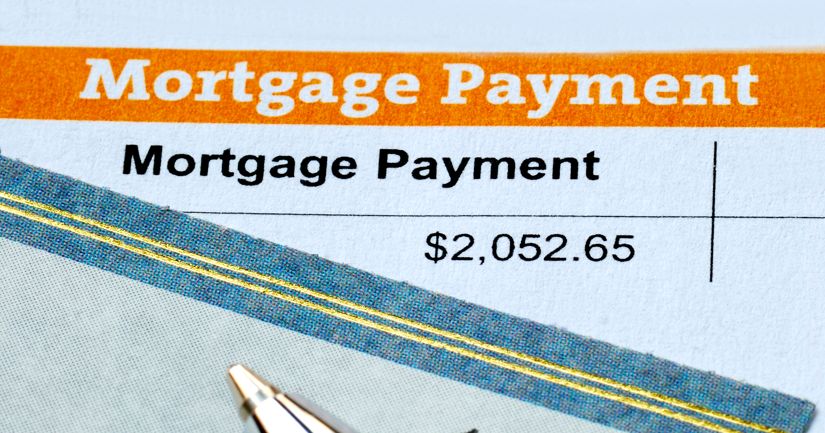Thinking of selling your home in the near future? There are several things you will need to consider besides the sale price. These items include your current mortgage balance, the details of the sales contract, and insurance requirements during the period your home is for sale, just as a start. There’s a lot to think about when it comes to the home selling process.
It can be an overwhelming process for anyone, especially if you haven’t gone through it before. The good news is there are experts ready to help you take care of the paperwork and get your home sold for the price you want.
With the right information at your disposal, you’ll enjoy a smoother home selling process and can start getting excited for moving day!
Preliminary Information To Gather
There are a few pieces of important information that you should know about before you go through the selling process so you know what steps to take next.

Get The Details On Your Current Mortgage
Contacting your lender first is a good way to sort out any special conditions that may apply to your mortgage. There are both open and closed mortgages and the type you have can determine whether you can use your sales proceeds to pay off the remaining mortgage without a penalty. This option is possible with an open mortgage, but not a closed one.
Another alternative to consider is whether you want to port (or transfer) your mortgage to your new home. It is important to note that this is not usually an option for most variable-rate mortgages.
Find Out The Terms Of The Purchase Contract
Purchase contracts are created according to industry standards and real estate law. Buyers have the options of accepting, rejecting or countering offers. You have the discretion to keep information on whether you have multiple offers private. The contracts will usually have conditions mentioned that include inspection reports and proof of financing.
Understand Your Property Insurance Conditions
Most industry representatives suggest sellers maintain insurance on the property for sale until the funds from the buyer are received.
As an example, Alberta law puts responsibility for any property damage during the selling process in the hands of the seller. So if something were to happen to the property, you would be on the hook for repairs. And if it’s not fixed, the buyer could pull out of the deal (depending on your contract and conditions).
If you are not currently living in the house, you’ll need to find out what your insurance carrier’s requirements are for proper coverage and ensure that’s taken care of.
Finding A Real Estate Professional
There are tons of resources available to help you find a great Realtor®. But one of the best ways to find a good agent is to get a referral from someone you trust that has worked with them.
There are governing agencies that help regulate the real estate industry. In Alberta, it’s the Real Estate Council of Alberta. Each province has its own council and there’s also the Canadian Real Estate Association.

Real estate professionals can offer valuable advice, including help to determine listing prices. One of the first things they’ll be able to do is provide a market evaluation that lists current sales prices in your neighbourhood. They also have a large network to tap into for potential buyers and can advertise your property.
Of course, you can try to do it on your own but that can complicate the home selling process even further if you don’t understand the details. A solid Realtor® will handle all of that for you.
There are several relationship options sellers may have with real estate professionals, including either common law or designated agencies, customer status and transaction brokerage. As mentioned, ask friends and family who’ve recently sold a home which real estate agent they used and how their experience was. This is an easy way to find the right person for the job.
Documentation And Disclosures
Some of the items you may need to start the sales process include:
- Real Property Report showing municipal compliance
- Condominium documents (if applicable)
- Information on defects and inclusions or exclusions
The Real Property Report provides the necessary information to show that your house complies with municipal regulations. In the case of a condominium, you’ll need the documents that pertain to this type of home.
Disclosures will cover two types of defects, known as latent defects and material defects. Latent defects are not discoverable during inspections, while material defects are seen as significant and possibly affecting the value.
Attached items, such as curtain rods, usually stay, but you can negotiate whether these go with you. This includes appliances! Not every seller leaves them behind; or they’ll take the one in the home and replace it with another model. If that’s your plan, you need to make sure it’s laid out in the documentation. Leased items, including alarm systems and similar devices, will also require consideration.
Legal Help
A lawyer will help create an easier title transfer or mortgage discharge process. Legal advice is also be helpful for determining your tax liability. Using the right professionals will help ensure a smoother process all around. With such a large transaction taking place, you want to make sure you’re doing it right and don’t encounter any surprises. Invest in the experience of a lawyer who handles real estate transaction processes all the time and can take care of the fine print for you.
The process of selling your home doesn’t have to be difficult when you’re equipped with the right knowledge and have a talented team of professionals on your side. Follow the above advice and you’ll be well on your way to a satisfying home sale!
Originally published Jul 27, 2017; updated Oct 7, 2022








0 Comments